Colloquium Participants
|
Alexandra Wrathall (MA, Macquarie University, 2014; MA, Tel Aviv University, 2018) is a senior PhD Candidate at Tel Aviv University, under the supervision of Oded Lipschits and Yuval Gadot. Alex’s research interests are related to development of narrative structures of extra-biblical texts from the Iron Age II Southern Levant, the study of typology, chronology, and context of Iron II ceramic assemblages, and post-colonial approaches to the study of local communities under the influence of imperial networks. Alex is an active archaeologist formally associated with Tel Azekah (2012–2022), Tel Hadid (2018–2022), Tel Beth Shemesh (East, Section A) (2018–2021), the Jerusalem surrounds (2014–2017), and Masada (2017–2018). Alex has collaborated in a series of papers including, A Case for Two Vorlagen Behind the Habakkuk Commentary (1QpHab) (Gorgias Press, 2013); Reading the Siloam Inscription as Narrative (JSOT, 2019); Cult Objects. In: Forced Resettlement and Immigration at Tel Hadid (BAR, 2020), and Beyond the Southern Horizon: An Early Iron IIB Ceramic Assemblage from Tel Azekah (IEJ, 2021).
|
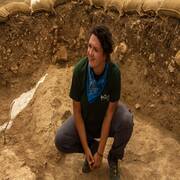 |
|
Amir Gilan is Professor of Hittite and Anatolian Studies at the Department of Archaeology and Ancient Near Eastern Cultures at Tel Aviv University. His research focuses on the political, religious, literary, and cultural history of ancient Anatolia, especially in the second millennium BCE. He is the author of Formen und Inhalte althethitischer historischer Literatur (Heidelberg: Winter Verlag 2015). His recent research projects include ‘The religious world of king Hattusili ‘III’ as reflected in his Autobiography and in related texts (funded by the ISF); ‘Akkadian and Hittite Emotions in Context (AHEC) – Towards a Lexicon of Emotions in Cuneiform Texts from Ancient Mesopotamia and Hittite Anatolia’ (with Prof. Doris Prechel and Dr. Ulrike Steinert, funded by the DFG) and ‘Colours and their Meaning in Hittite Religion’ (likewise funded by the ISF). He is co-editor of the IOS Annual.
|
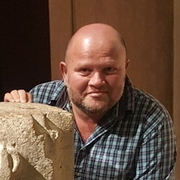 |
|
Angelika Berlejung (PhD, Heidelberg, 1998), is since 2004 Professor for “History and History of Religion of Israel and its Environment” at the Faculty of Theology of the University of Leipzig; as of 2009 Associate Professor of Ancient Studies at Stellenbosch University/South Africa; and as of 2017 Visiting Full Professor for Biblical Archaeology at Bar Ilan University/Israel. Berlejung’s research focuses on history of religion, languages, social anthropology and iconography of the Southern Levant. She is co-director of the Minerva-center “Research on Israel and Aram in Biblical Times” (with Prof. A.M. Maeir), author of Divine Secrets and Human Imaginations (ORA 42 Tübingen: Mohr Siebeck 2021), and main editor of the “Encyclopedia of Material Culture in the Biblical World” (Mohr Siebeck 2022). Since 2017 Full Member of the Saxon Academy of Sciences. |
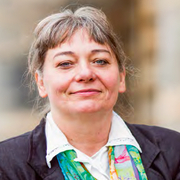 |
|
Anna Angelini (PhD, University of Siena, Italy, 2008) is post-doctoral researcher at the University of Zurich (Switzerland) in the European Research Council Project “How God Became a Lawgiver: The Place of the Torah in Ancient Near Eastern Legal History,” https://www.divlaw.uzh.ch/en.html). Angelini’s research focuses on the comparative study of Ancient Israelite and Ancient Greek cultures and religions and on Hellenistic Judaism. She is the author of Dal Leviatano al drago: mostri marini e zoologia antica fra Grecia e Levante (Bologna: Il Mulino, 2018), L’imaginaire du démoniaque dans la Septante. Une analyse comparée de la notion de démon dans la Septante et dans la Bible Hébraïque (Brill, 2021, https://brill.com/display/title/60741), The Language of Colour in the Bible. Embodied Colour Terms Related to Green (With Lourdes Garcia Ureña, Emanuela Valeriani et al., De Gruyter, 2022); and co-editor of Food Taboos and Biblical Prohibitions (With Peter Altmann and Abra Spiciarich, Mohr Siebeck, 2020, https://www.mohrsiebeck.com/en/book/food-taboos-and-biblical-prohibitions-9783161593550). She serves as General Associate Editor for the Journal of Hebrew Scriptures (JHSonline.org). |
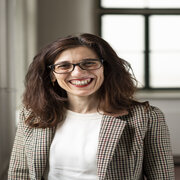 |
|
Brady Beard (MDiv, Princeton Theological Seminary, 2015) is a PhD candidate in Hebrew Bible in the Graduate Division of Religion at Emory University and is the Reference and Instruction Librarian at Pitts Theology Library, Emory University. His research focuses on iconographic exegesis and comparative analysis of prophetic literature in the Hebrew Bible. He has published in JNSL and contributed to The Oxford Handbook of the Minor Prophets and Dress Hermeneutics and the Hebrew Bible.
|
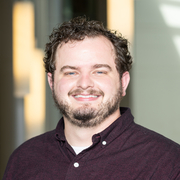 |
|
Caitlin Joy Hubler (MDiv, Columbia Theological Seminary, 2019) is a doctoral student in Hebrew Bible in the Graduate Division of Religion at Emory University. Her work engages conceptions of divinity within the Hebrew Bible and ancient Near East using historical and philosophical lenses. Caitlin’s writing has appeared in Journal for the Study of Old Testament as well as The Biblical Mind, Mockingbird Magazine, and the Project on Lived Theology. She has presented in both national and regional meetings of the Society of Biblical Literature in program units ranging from Philology in Hebrew Studies to Religion in America. Prior to her doctoral studies, Caitlin taught high-school introductory Greek and worked as Editorial Assistant at the Society of Biblical Literature. |
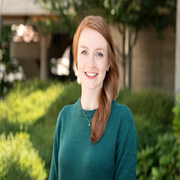 |
|
Dafna Langgut is a Senior Lecturer in the Department of Archaeology and Ancient Near Eastern Cultures at Tel Aviv University, Israel. In 2013 Langgut established the Laboratory of Archaeobotany and Ancient Environments. She specializes in the study of past vegetation and climate in the Near East, based on the identification of botanical remains. Through this discipline, she reconstructs climate changes and considers the past relationship between humans and the environment, e.g. human dispersal out of Africa and the beginning of domestication. Langgut's research also involves the identification of micro-botanical remains (mainly pollen) and macro-botanical remains (wood-charcaol remains) from archaeological contexts. These studies address questions related to issues such as ancient diet, plant usage, plant migration, ancient gardens, and wooden implements. Langgut is also the curator of pollen and archaeobotanical collections at the Steinhardt Museum of Natural History, Tel Aviv University. |
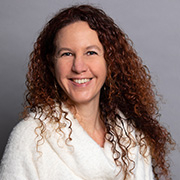 |
|
Deborah Sweeney (PhD, Hebrew University of Jerusalem, 1990) is a senior lecturer in Egyptology in the Department of Archaeology and Ancient Near Eastern Cultures at Tel Aviv University. Her research focuses on the royal tomb-builders’ village of Deir el-Medîna (including animal-keeping at that site), and on women and gender, letter-writing, and religious practice in everyday life in ancient Egypt. She is the author of Correspondence and Dialogue: Pragmatic Features in Late Ramesside Letter-writing (Harrassowitz, 2001) and is currently writing a book on gender and religious practice at Deir el-Medîna. |
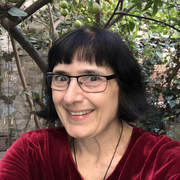 |
|
Eric McDonnell (MA, Fuller Theological Seminary, 2018) is a PhD Candidate in Hebrew Bible in the Graduate Division of Religion at Emory University and the Digital Initiatives & Web Manager at the Society of Biblical Literature / SBL Press. McDonnell’s research focuses on the MT Psalter, the shape and shaping approach to the Psalms, and the application of literary theory in the interpretation of biblical texts. His dissertation, tentatively titled “Like Trees Transplanted: Context and Interpretation in the Beginning of the MT Psalter,” studies the complex history and literary function(s) of Pss 1–3. At the Society of Biblical Literature, he is coordinating the redesign of bibleodyssey.org, an indispensable tool for educators and the public face of SBL. McDonnell’s writing has appeared in Antiguo Oriente, Hebrew Studies, the Review of Biblical Literature, and the Journal of the Bible and Its Reception (forthcoming). |
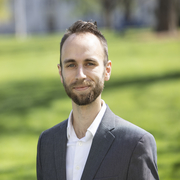 |
|
Hadas Saaroni (PhD, Tel Aviv University, 1995) is a Full Professor of Climatology in the Department of Geography and the Human Environment in the Porter School of Environment and Earth Sciences at Tel-Aviv University. Saaroni’s fields of expertise include synoptic climatology, regional climatology, and climate change--from the urban up to the regional scales including future scenarios based on outputs of climate models, and urban and applied climatology. Her research combines theoretical and applied aspects, for example, extreme weather events, and their relation to synoptic and mesoscale conditions, using 'environment to climate' and 'climate to environment' approaches and downscaling methodologies. She has published about 100 reviewed articles in the leading journals in the field and edited several special issues in climate journals. Saaroni is an active member of the new Global Climate Change Center established at Tel Aviv University, active in national and international research groups including participation and organization of international conferences. She serves as vice-chair of the Commission of Climatology within the International Geographic Union and served as the head of the Department of Geography and the Human Environment. |
 |
|
Haim Moyal (PhD, Cluj University, 2012) is a zoologist, and more specifically, an ornithologist. He focuses on the habitat selection of nesting birds in Israel. Moyal wrote six different books on birds: Birds in Israel, Their Names Explained (B.B Press, 1991); Lexicon of Vertebrates in Israel (TevaHadvarim Publishing, 2001); Birds of the Holy Land (Mishkan Press, 2011); Field Guide of Diurnal Birds of Prey in Israel (TevaHadvarim Publishing, 2013); Guide of Birds of Israel in All Seasons (TevaHadvarim Publishing, 2013); Birds Families in Israel and their representation in the world (Keshet Press, 2022). Moyal translated and scientifically edited H.B Tristram (1884), The Fauna and flora of Palestine (Bialik Publishing, 2007); and he published over seventy popular articles on Birds in TevaHadvarim Magazine (in Hebrew). Moyal is part of the DNI Bible Project team, and co-authors with Dalit Rom-Shiloni a volume on Birds Imagery in the Hebrew Bible (in preparation). |
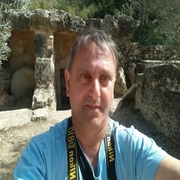 |
|
Hindy Najman (PhD, Harvard University, 1998) is the Oriel and Laing Professor of the Interpretation of Holy Scripture and a fellow at Oriel College. She is the director and founder of the Centre for the Study of the Bible in Oriel College. In the University of Oxford, she is a member of the Faculty of Theology and Religion, the Faculty of Asian and Middle Eastern Studies, and member of the Sub-faculty Classics. Prior to her joining the faculty in Oxford, she has held posts at the University of Notre Dame, University of Toronto, and Yale University. Her areas of research are entanglement of Ancient Culture; Reading Practices in Jewish Antiquity; Comparative Philology; Performance; Formation of the Self and the Subject; Collection and Canon; Authority and Author Function; Biblical Figures and Exemplarity; Practices of Pseudepigraphy and Pseudonymous Attribution; Revelation; Diaspora and Exile; Trauma Studies; and Nature and Law. Her major publications include Losing the Temple and Recovering the Future: An Analysis of 4 Ezra (Cambridge University Press, 2014); Past Renewals: Interpretive Authority, Renewed Revelation, and the Quest for Perfection (Brill, 2010); Seconding Sinai: The Development of Mosaic Discourse in Second Temple Judaism (Brill, 2003; SBL 2009). She has published over 50 articles and has edited 18 volumes. She is currently associate editor for the Journal of Biblical Literature; the thematic issues editor for Dead Sea Discoveries and an associate editor for the Journal for the Study of Judaism Supplement Series and on the editorial board for the Journal for the Study of Judaism. |
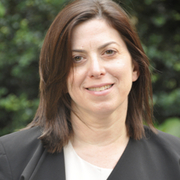 |
|
Johannes Seidel (MA, University of Heidelberg, 2019) is PhD student and research assistant at the department of Old Testament studies at the University of Jena (supervisor Prof. Dr. Hannes Bezzel, 2nd supervisor Prof. Dr. Angelika Berlejung [University of Leipzig]), currently on research leave at Tel Aviv University under supervision of Prof. Dr. Dalit Rom-Shiloni. Seidel’s research focusses on the cedar tree and its related natural concepts. He has published two lexicon entries on Tekoa and Bet-Horon for WiBiLex and led the podcast project “Tells and Tales” on Biblical Archaeology funded by the German Rectors’ Conference. |
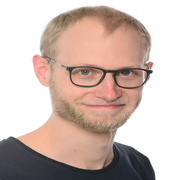 |
|
Jonathan Ben-Dov (PhD Hebrew University, 2005) is professor at the Department of Biblical Studies, Tel Aviv University (formerly at the university of Haifa). He studies astronomy and cosmology in the Ancient Near East, the Hebrew Bible and ancient Judaism, alongside a variety of other fields. He is the co-author of the recent volume Digital and Material Reconstruction of Fragmentary Dead Sea Scrolls (with Asaf Gayer and Eshbal Ratzon, 2022); co-editor of Ancient Jewish Sciences and the History of Knowledge (with Seth Sanders, 2015) and of Afterlives of Ancient Rock-Cut Monuments in the Ancient Near East (with Felipe Rojas, 2021). He has published widely on astronomy and time reckoning as well as on the Books of Amos and Job. |
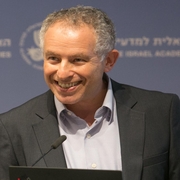 |
|
Lidar Sapir-Hen (PhD, Tel Aviv University, 2011) is a Senior Lecturer in the Department of Archaeology and Ancient Near Eastern Cultures and Curator of Archaeozoological Collections of the Steinhardt Museum of Natural History, Tel Aviv University. Specializing in the study of faunal remains, Lidar’s main research interests include the interaction between humans and animals in the past, from prehistoric to historic periods, in the context of economic, political, social, and environmental changes. Major publications deal with the social complexity of ancient populations, and identity and cultural aspects as reflected in food production and consumption. Lidar is currently involved with several excavations that date from the early Neolithic through to Late Antiquity.
|
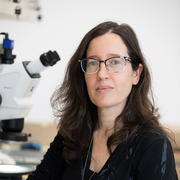 |
|
Łukasz Popko (PhD, EBAF, 2013) is extraordinary professor at the École biblique et archéologique française de Jérusalem and lecturer at the Dominican College in Cracow. Popko’s research ranges from the metaphor theory, Septuagintal studies, to textual criticism and the iron age history. He wrote Marriage Metaphor and Feminine Imagery in Jer 2,1 - 4,2: A Diachronic Study Based on the MT and LXX (Gabalda, Peeters, 2015). At the Ecole Biblique, he is the director of the editorial committee of the Bible in Its Traditions project, an on-line platform publishing the annotated Bible (the printed volumes are published by the Peeters). Since 2020, he is responsible for the critical edition of the Second Book of Kings for the Biblia Hebraica Quinta (Deutsche Bibelgesellschaft). |
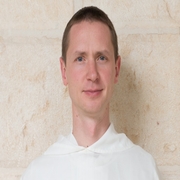 |
|
Marcelo Sternberg (PhD, The Hebrew University of Jerusalem 1994) is a Ful agro-ecology. In parl Professor at School of Plant Sciences and Food Security in the Faculty of Life Sciences at Tel Aviv University. He is an experimental ecologist interested in the effects of human activities on natural and agricultural ecosystems. Within this topic, he addresses questions covering global climate change, biodiversity, plant ecology, ecosystem functioning, andticular, he is interested in the development of ecological research using experimental approaches to tackle the challenges of global climate change. Prof. Sternberg was nominated Chang Jiang Chair Professor at Ningxia Univeristy in China. This is the highest academic award given by the Chinese government to scientists. He is the author of over 90 scientific publications published in leading peer-reviewed international journals such as Science, Nature Communications, Ecology Letters, Global Change Biology among others, with over 7,800 citations and H-Index: 41; i10-index: 79. Prof. Sternberg is currently leading the Carbon Neutral Initiative at Tel Aviv University aimed to reduce the ecological footprint of the university activities. Website: http://en-lifesci.tau.ac.il/profile/marcelos |
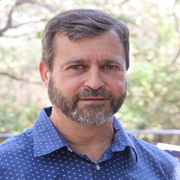 |
|
Mark Preston Stone (MA, Seatle Pacific Seminary, 2014) is a doctoral student in Hebrew Bible in the Graduate Division of Religion at Emory University. Stone’s research focuses on food rituals, ancient sexualities, poetry, and the literary development of Hebrew narratives. His writing has appeared in Journal for the Study of the Old Testament, Currents in Biblical Research, Review of Biblical Literature, and an edited volume on holiness in the Wesleyan theological tradition. |
 |
|
Norma Franklin (PhD, Tel Aviv University, 2006). Franklin is a field archaeologist whose research has focused on three northern kingdom of Israel sites: Samaria, Megiddo, and Jezreel. She was a member of the Megiddo Expedition from 1992 to 2011, and currently co-directs the Jezreel Expedition. In addition, she studies the iconography of the date palm. She is a Research Associate at the Zinman Institute of Archaeology of the University of Haifa and an Associate Fellow of the W. F. Albright Institute of Archaeological Research in Jerusalem. The author of numerous papers, the most recent being: Franklin, N. The Water Systems of Samaria-Sebaste (Forthcoming), A Reassessment: Is the Cone-Shaped Object Held by the Genii in Aššurnaṣirpal II’s Palace at Kalḫu a Citron? (Forthcoming), Stone Volutes: United by a Common Motif not by a Common Function (2022), The Assyrian Stylized Tree: A Date Palm Plantation and Aššurnaṣirpal II's Stemma (2021), Megiddo and Jezreel reflected in the dying embers of the Northern Kingdom of Israel (2019), The Kushite Connection: Sennacherib's Campaign against Hezekiah of Judah in 701 BCE (2018), Exploring the function of Bell-shaped pits: with a view to Iron Age Jezreel (2018), Entering the Arena: The Megiddo Stables Reconsidered (2017). |
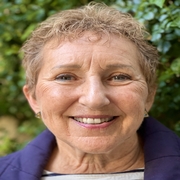 |
| Peter Joshua Atkins (PhD, University of Chester, 2021) is Teaching Fellow in Old Testament and Hebrew Bible at the University of Edinburgh. Atkins’ research focuses on the book of Daniel, the place of animals and animality in biblical and ancient Near Eastern texts, and the history of reception of the Bible. He is the author of The Animalising Affliction of Nebuchadnezzar in Daniel 4: Reading Across the Human-Animal Boundary (T&T Clark/Bloomsbury, 2023), as well as journal articles on biblical animals in the Journal for the Study of the Old Testament and Biblical Interpretation. He is also co-founder and co-chair of the 'Animals and the Bible' research group for the European Association of Biblical Studies. | 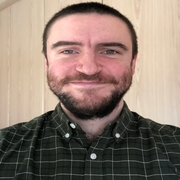 |
|
Pinhas Alpert (PhD, Hebrew University of Jerusalem, 1980) is a Professor of Dynamic Meteorology and Climate, in the Department of Geophysics at Tel-Aviv University. His research focuses on atmospheric dynamics, climate, numerical methods, limited area modeling, aerosol dynamics and climate change. Alpert established and chairs the Israel Space Agency Middle East Interactive Data Archive (ISA-MEIDA), currently named IACDC. He served as the Head of the Department of Geophysics and Planetary Sciences at Tel Aviv University (2005-2008), and Head of the Porter School of Environmental Studies, Tel-Aviv University (2008-2013). Alpert is the developer of a methodology that allows calculating atmospheric synergies, described in the book he co-authored, Factor Separation in the Atmosphere, Applications and Future Prospects (Cambridge University Press, 2011). He is a co-author of ~280 peer-reviewed articles and 4 books. Alpert served as co-director of the GLOWA-Jordan River BMBF/MOS project to study the water vulnerability in the E. Mediterranean. Alpert and colleagues’ paper in Science (2006), proposing a new approach for advanced flood warning, won the "Popular Science 2009 Best of What’s New" award, security category, as well as the WIPO award (2010). He also received the EGU Bjerknes medal (2018). |
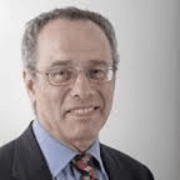 |
|
Raanan Eichler (PhD, Hebrew University of Jerusalem, 2016) is Associate Professor of Bible in the Zalman Shamir Bible Department at Bar-Ilan University. Eichler’s research focuses on the relationship between the Bible and the natural, material, and iconographic reality of the ancient Near East, on deliberate ambiguity and humor in the Bible, and on the effect of diachronic grammatical changes in Hebrew on the textual and interpretation history of the Bible. He is the author of The Ark and the Cherubim (FAT; Mohr Siebeck, 2021). His two most recent articles are “China Is in the Bible” (Vetus Testamentum, 2023) and “A Conjectural Emendation in Psalm 68,19” (Biblica, 2022). |
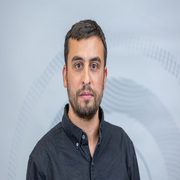 |
|
Reuven Givati (PhD, University of California at Davis, 1993; MA of Biblical Science, Tel Aviv Univercity, 2019) is an atmospheric scientist who has also done research in biblical studies. The title of his Masters thesis is “Biblical Knowledge of Climate Phenomena in Comparison to Modern Climatic Knoledge.” Givati writes sections of climate for the DNI Bible website, some of them were already published in the website. |
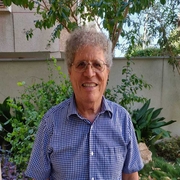 |
|
Sara Kipfer (PhD, University of Bern, 2013) is Professor of Protestant Theology with a focus on the Old Testament at the Faculty of Humanities and Theology at TU Dortmund University. Kipfer’s research focuses on the Book of Prophets (especially the Book of Samuel, Jeremiah, Joel and Haggai). She is author of Der bedrohte David. Eine exegetische und rezeptionsgeschichtliche Studie zu 1Sam 16 – 1Kön 2 (Walter de Gruyter, 2015) and Extreme Klimaereignisse und Hungerkatastrophen in den Prophetenbüchern (Brill, 2023). She has further published a variety of articles on ancient Near Eastern iconography, emotions and concepts of nature in the Hebrew Bible. Currently she is working on a Commentary of the Book of Joel for The Oxford Biblical Commentary Series (Oxford University Press).
|
 |
|
Shira Penner Rosenvasser (PhD, Tel Aviv University, 2020) is a biologist specializing in the fields of Botany, Evolution, and Ecology in the Steinhardt Museum of Natural History, Tel Aviv University. Shira is developing contents for the department of education and science communication in the Steinhardt Museum, as well as functioning as the laboratory manager of the archaeobotanical laboratory in the Museum. She also serves as a botanical consultant as part of the Dictionary of Nature Imagery of the Bible (DNI) project. |
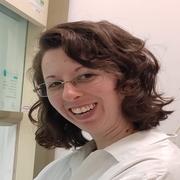 |
|
Tova L. Forti (PhD, The Hebrew University of Jerusalem, 2000) is Associate Professor of Biblical Studies at Ben-Gurion University of the Negev. Her research interests include the Wisdom literature (Proverbs, Ecclesiastes, and Sirach), the book of Psalms, animal imagery, and the Septuagint of Proverbs. She is the author of Animal Imagery in the Book of Proverbs (Leiden: Brill, 2008), and “Like a Lone Bird on a Roof”: Animal Imagery and the Structure of Psalms (Eisenbrauns and Pennsylvania State University Press, 2018). She is currently collaborating with Katharine Dell (Cambridge University) on a commentary on Ecclesiastes for the International Exegetical Commentary on the Old Testament (Kohlhammer). |
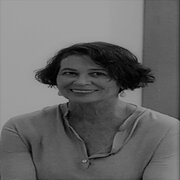 |
|
Uzi Paz (PhD, Tel-Aviv University, 1978) is a biologist and an environmental activist. Specialized in zoology, ornithology, and botany in the land of Israel – past and present – Paz is amongst the pioneers of the preservation and protection of Israel’s nature. In 1959 he established the department of the preservation of nature in the Ministry of Agriculture and was the first director of “The Israel Nature and Parks Authority,” from 1964 to 1965, and the authority’s Chief-Scientist until 1980. After that he served as a member of the authority’s plenum, and as Chair of the scientific-professional committee, until 2002. Paz is the author of some twelve books, among them: Land of the Gazelle and the Ibex: Reservations and Nature in Israel (Massada, 1981); In the Land of Bible (Modan, 2006); author and editor of The Birds 6th volume of the major Encyclopedia: Plants and Animals of the Land of Israel (Misrad HaBitachon, 1993), and hundreds of papers (mostly in Hebrew). |
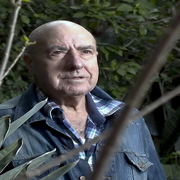 |
|
Wayne Horowitz (PhD, University of Birmingham, 1986) is Professor of Assyriology at the Institute of Archaeology of the Hebrew University. Born in New York City, Wayne ‘made aliya’ to Israel in 1986 after completing his PhD with Professor W.G. Lambert at the University of Birmingham in England. Professor Horowitz has been at the Hebrew University since then and has written extensively on the subject of Ancient Near Eastern Astronomy and Cosmography, and cuneiform texts from the Land of Israel. |
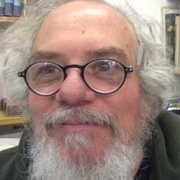 |
| Yoram Cohen (PhD Harvard University, 2003) is a scholar of the ancient Near East, specializing in Assyriology. He is a full professor at the Department of Archaeology and Ancient Near Eastern Cultures, Tel Aviv University. His research interests are: (1) History of Bronze Age Syria; (2) Ancient Near Eastern Wisdom Literature, and (3) Intellectual History of the ANE. He is the single author of four books and the author of over 80 articles and reviews. Among his recent publications are Wisdom from the Late Bronze Age (Society of Biblical Literature, 2013); The Babylonian šumma immeru Omens: A Study of Textual Transmission, Reception and Standardization (Zaphon, 2020); (N. Wasserman, co-author) “Mesopotamian Wisdom Literature” in W. Kynes (ed.), The Oxford Handbook of Wisdom and Wisdom Literature (Oxford University Press, 2021); and “Of Gods and Men: Animal and Plant Disputation Poems and Fables in Babylonia, Persia and Greece,” pp. 145-153 in A. Kelly and Ch. Metcalf (eds.), Of Gods and Mortals (Cambridge University Press 2021). | 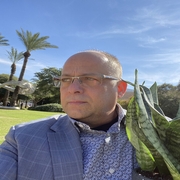 |
|
Yuval Sapir (PhD, The Hebrew University of Jerusalem, 2004) is Senior lecturer in school of Plant Sciences, and the director of the Yehuda Naftali Botanic Garden, Faculty of Life Science, Tel Aviv University. Yuval is a trained field botanist, expert in Israeli flora and vegetation. Yuval’s research is in the discipline of plants evolutionary ecology, including plant genetics and genomics, pollination biology, plant adaptation to climate and conservation biology. Currently, the research in Yuval’s group focuses on evolution of flower color and size variation in irises and anemones, and the genetic basis of these traits (https://labsapir.wixsite.com/labsapir). |
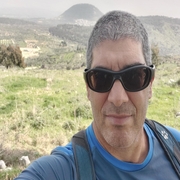 |

